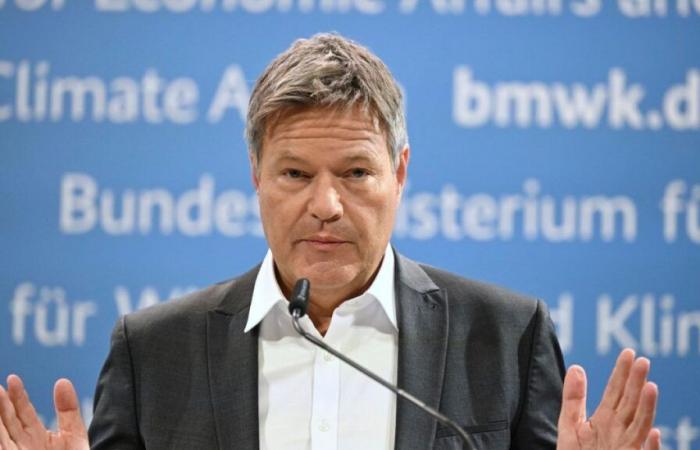German Deputy Chancellor Robert Habeck is expected to announce candidacy as leader Olaf Scholz faces pressure to call early elections after the collapse of the country’s governing coalition.
ADVERTISEMENT
Germany’s Deputy Chancellor and Economy Minister Robert Habeck will announce his bid for the country’s top job on Friday on behalf of the Greens, according to media reports, amid a political crisis sparked by the collapse of the ruling three-party coalition.
In a video posted on Habeck’s X account on Thursday — who this week returned to the platform after a six-year hiatus — the Green minister is seen wearing a bracelet featuring the words “Chancellor era”, seemingly teasing an upcoming announcement.
Friedrich Merz, leader of the country’s biggest opposition party, the Christian Democratic Union (CDU), dismissed Habeck’s potential candidacy out of hand.
“There is certainly a humorous element to declaring yourself a candidate for chancellor when you have nine percent of the vote,” Merz said.
The Greens, alongside their coalition partners the Social Democratic Party (SPD) and the Free Democratic Party (FDP), have seen their popularity plummet as part of an acrimonious governing coalition that this week collapsed in spectacular fashion.
Just 14% of the German public was satisfied with the government as of October this year — the lowest rating for a ruling government in Germany in decades.
Tensions between the coalition partners reached breaking point on Wednesday, when German Chancellor Olaf Scholz fired his finance minister Christian Lindner.
Lindner, who belongs to the FDP, then removed his ministers from the coalition, leaving Scholz and the Greens without a parliamentary majority.
Habeck, who is also the German federal minister for economic affairs and climate protection, said on Thursday that his ministers would remain in the governing coalition with Scholz until a no confidence vote, and subsequent elections, were called.
Adding to Scholz’s woes, the CDU and its leader Merz have called for a vote of no confidence to be held as early as Wednesday next week.
Scholz previously set the date for 15 January, and insisted he would continue to govern in the interim despite not having a majority in parliament.
Talks between the pair on Thursday evening ended in stalemate, with Merz saying that he and the Chancellor had “parted in disagreement”.
Support for an earlier election is high among the German public, with 84% in favour, according to a poll conducted by broadcaster ZDF.
It is unclear how Scholz will be able to govern in the interim, as he would have to rely on votes from individual parties to pass laws.
Other parties including The Left, Alternative for Germany (AfD) and the Alliance Sahra Wagenknecht (BSW) were united in their dislike for the ruling coalition.
AfD politician Bernd Baumann urged Scholz to hold “immediate new elections”.
Experts have warned that without a clear mandate in parliament, Germany would struggle to show leadership, both domestically and on an international level.
“If new elections are not called before the end of March, this would mean that Germany would have to wait until June for a new, fully functioning government with its own majority to take office — and that’s assuming everything goes smoothly” said Jane Puglierin, senior policy fellow at the European Council on Foreign Relations.
“This means that Germany will not be able to play a leading role at the European level.”






